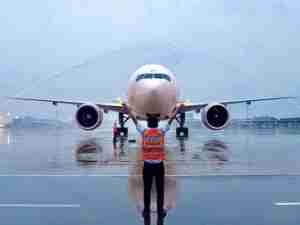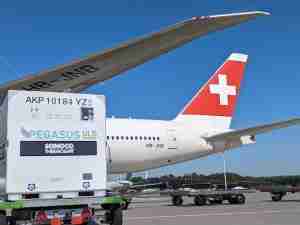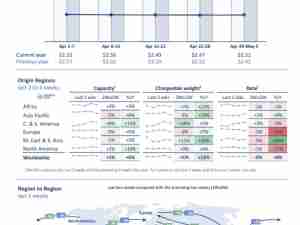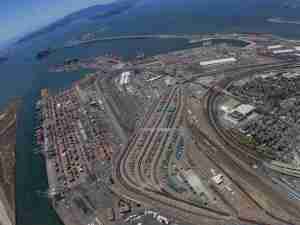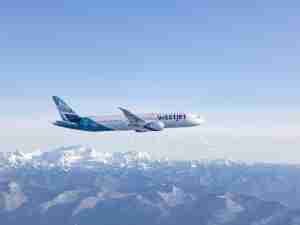'Because of these negative factors, air cargo volume will not show consistent growth next year. Some months will demonstrate gains while others will reflect declines,' said Julian Keeling, CEO at Consolidators International (CII), a forwarder/wholesaler based in Los Angeles.
After discussing the cargo situation with shippers, airline cargo executives and other forwarders, Keeling believes 2013 will show an aggregate gain for the year of no more than two per cent. 'If the U.S. and global economies sink into the morass of the 2007-09 recesion, however, even that modest growth will vanish like a breeze of summer,' cautioned the veteran forwarder.
Both air and sea commerce between First World nations, that dominate global trading lanes, may be affected by negative macro-economic trends, warned Keeling. 'Growing nationalism by the world's leading industrial nations may become an impediment to growth. With unemployment remaining stubbornly high, governments will apply every measure to entice companies to bring their factories back home to generate jobs for their citizens. 'Insourcing' may be more expensive but governments will appeal to the patriotism of corporate executives while handing out subsidies to their companies. Popular support for these actions will be overwhelming,' affirmed Keeling.
'I don't see a return to a Smoot-Hawley-type tariff of the nineteen thirties which froze international trade for a decade. But nations will draw in their borders to protect their industries,' he continued.
The CII executive pointed to another obstacle to profitable growth. Overcapacity of aircraft is a growing problem,' he asserted. 'We have too many planes flying too little freight at too low a cost,' emphasized Keeling. We need more freighters parked in the Mojave Desert and less in the air until air freight returns to sustained growth.'
The CII head differed sharply with Boeing's estimate of five per cent per year air cargo growth for the next twenty years. He noted that air freight hasn't shown five per cent consistent growth during the past ten years. Boeing is being far too optimistic,' he asserted.
The forwarder also noted that shippers are scrutinizing transportation options with greater care than ever before. 'Many customers are turning either to time-definite express delivery of their critical shipments. Much less time sensitive cargo is loaded aboard ocean containers ,' said Keeling. 'Conventional air freight seems to be stuck in the middle.'
Turning to prospects for CII in 2013, Keeling commented the outlook for his company is generally favorable based on its concentration on Australian and New Zealand markets. 'These two nations, with their strong economies, plus our finding new export markets among the South Pacific Islands like the two Samoas, will keep us in the plus column for 2013,' he stated. Keeling noted that CII has become the dominant air and sea forwarder in American Samoa, a 'niche' market for the company.
With a solid home base in Los Angeles, expanding offices at JFK, Atlanta, Houston & Chicago, a newly energized management team and advanced technology, Keeling is optimistic about next year. He is predicting a twelve per cent rise in revenue with a corresponding increase in profitability.
'While I'm cautious about the air freight industry, I'm optimistic about Consolidators International,' concluded Keeling.

